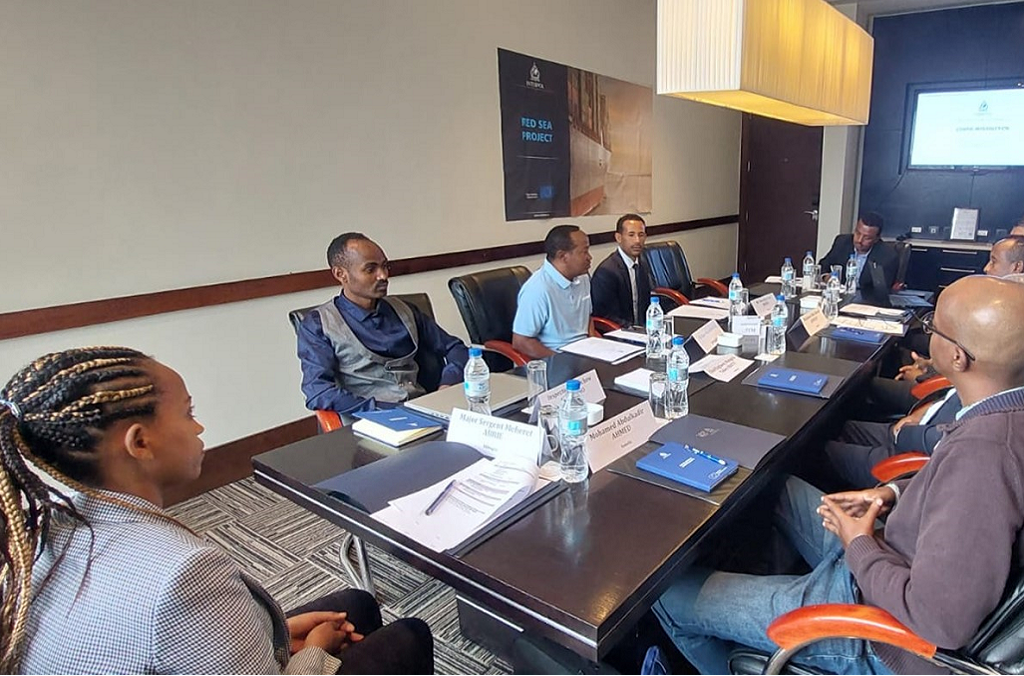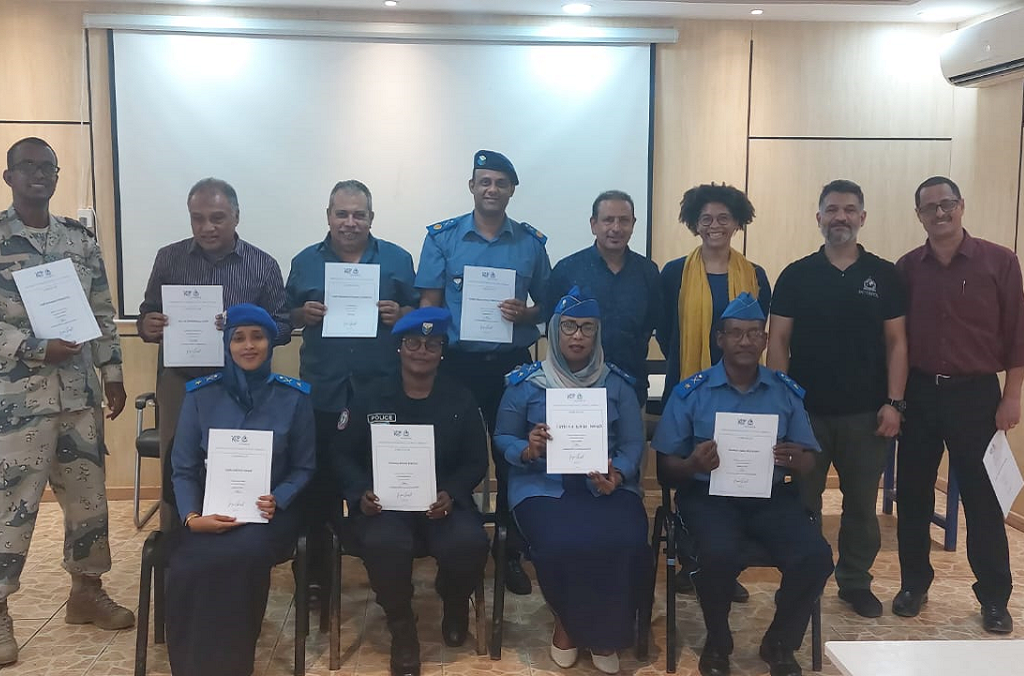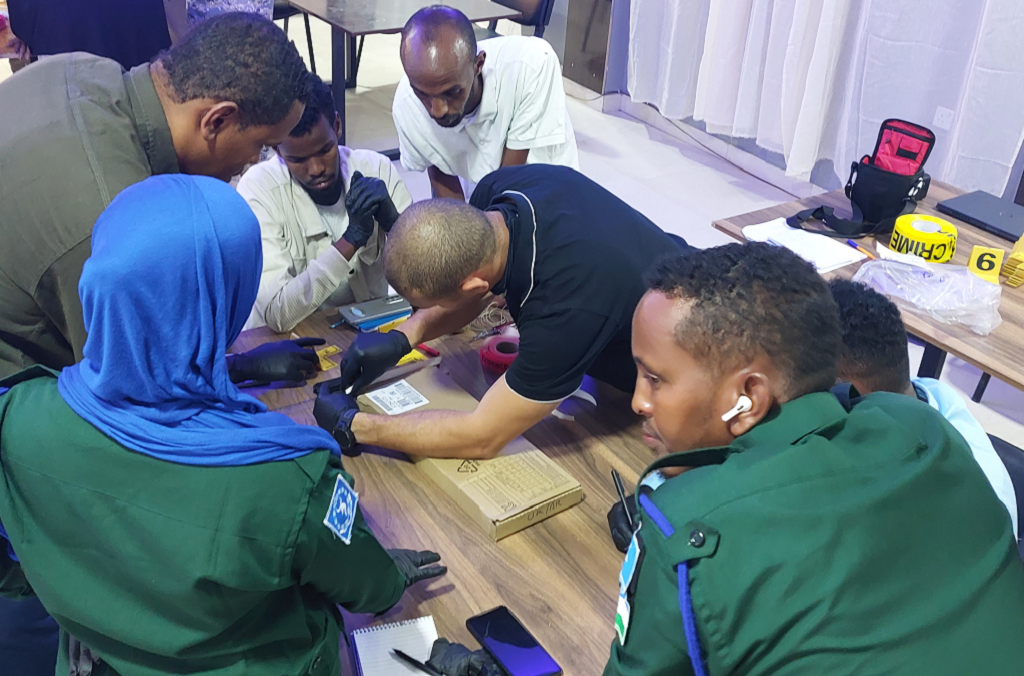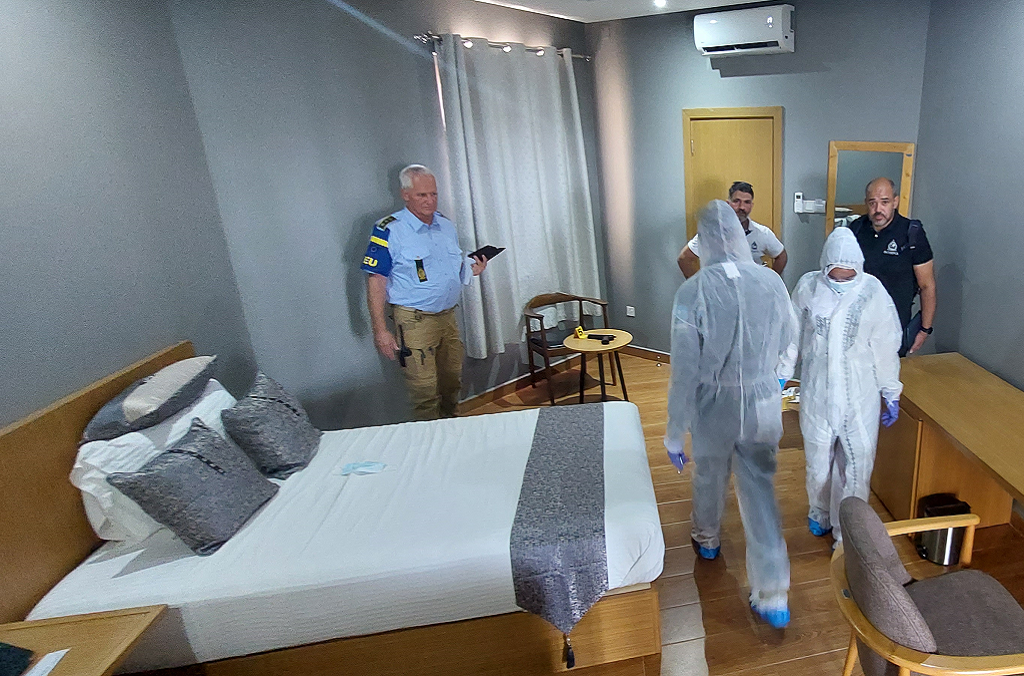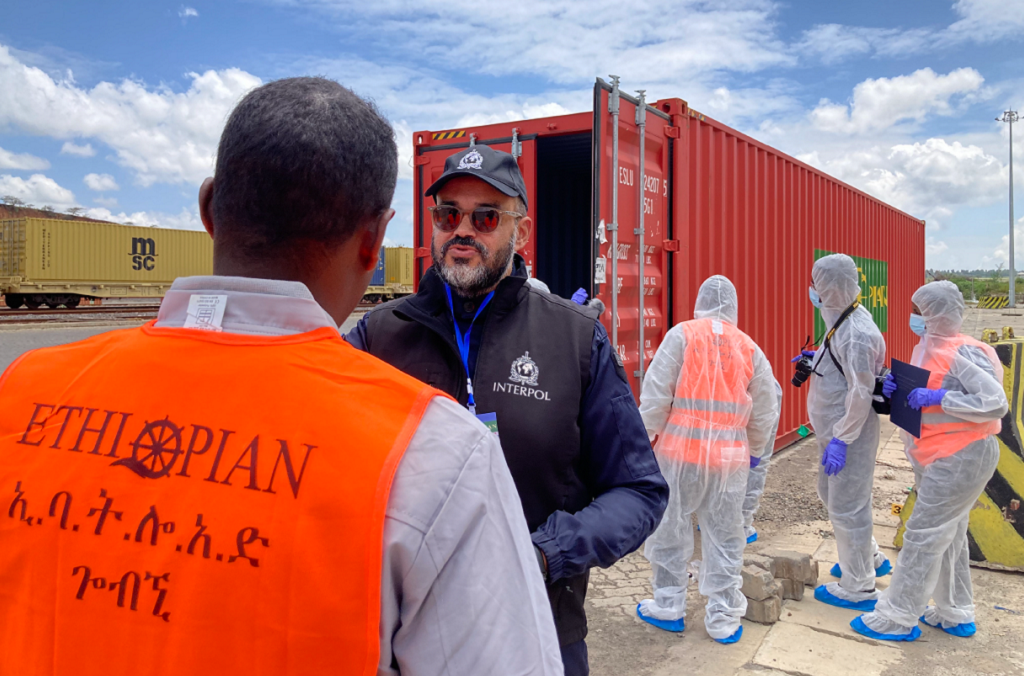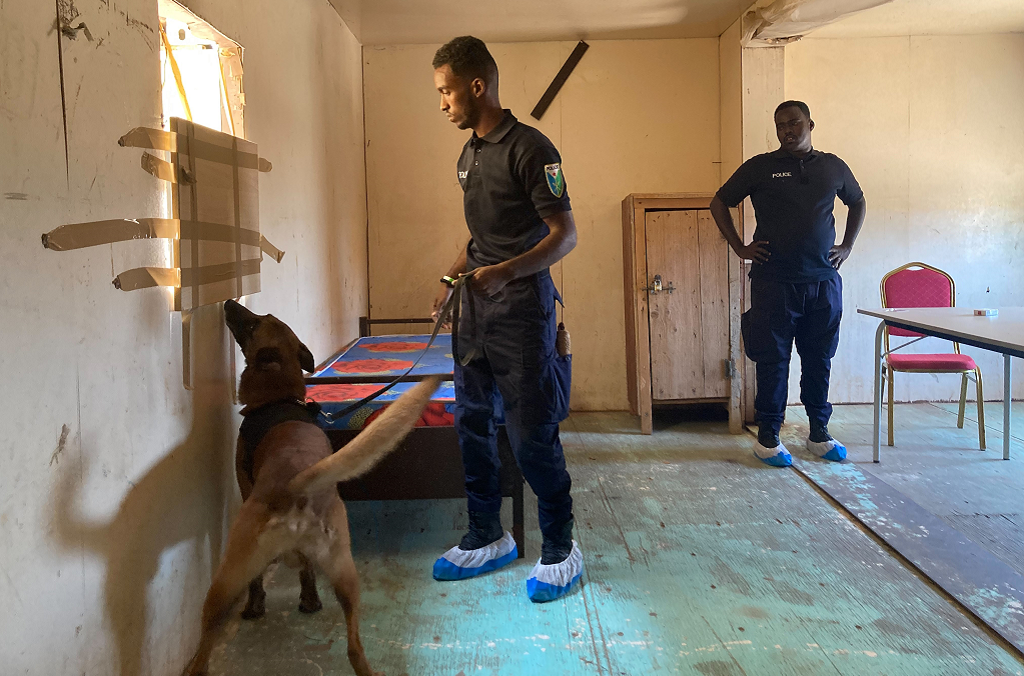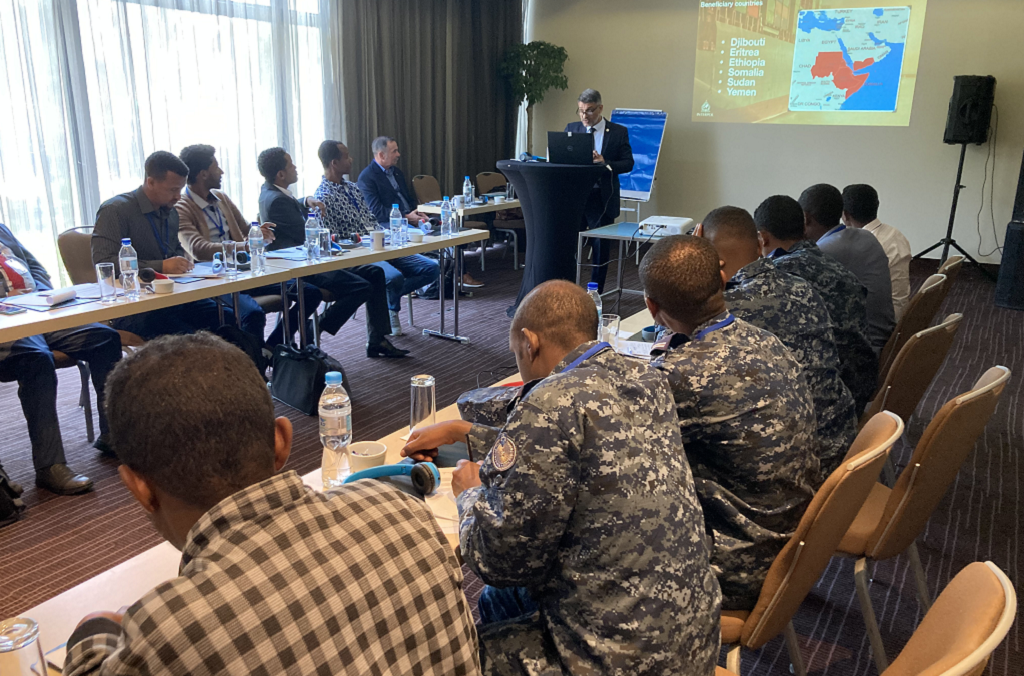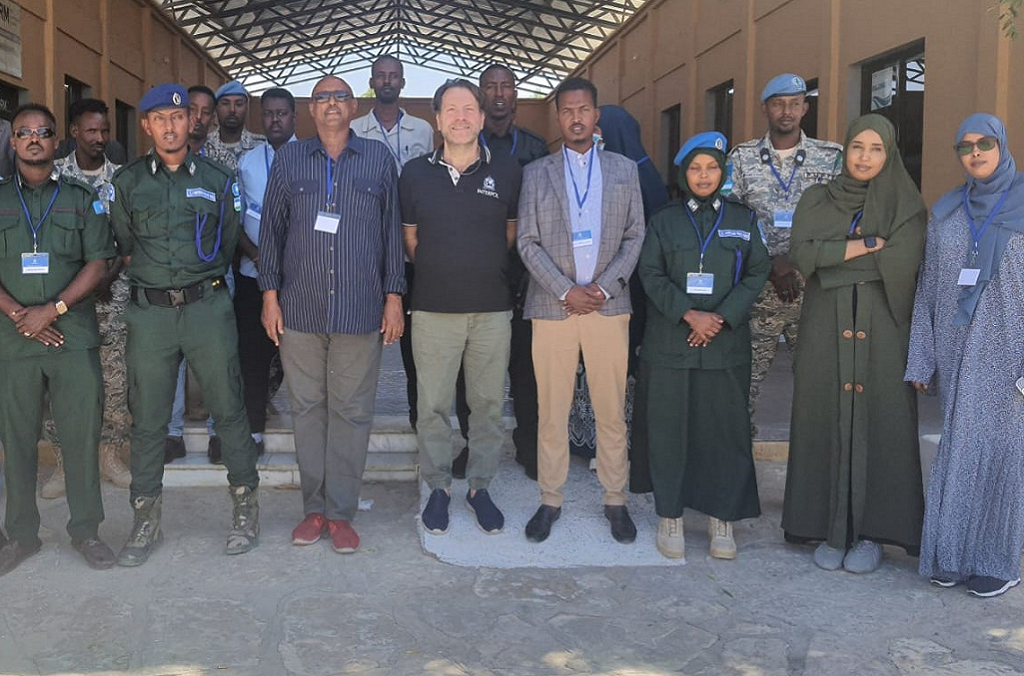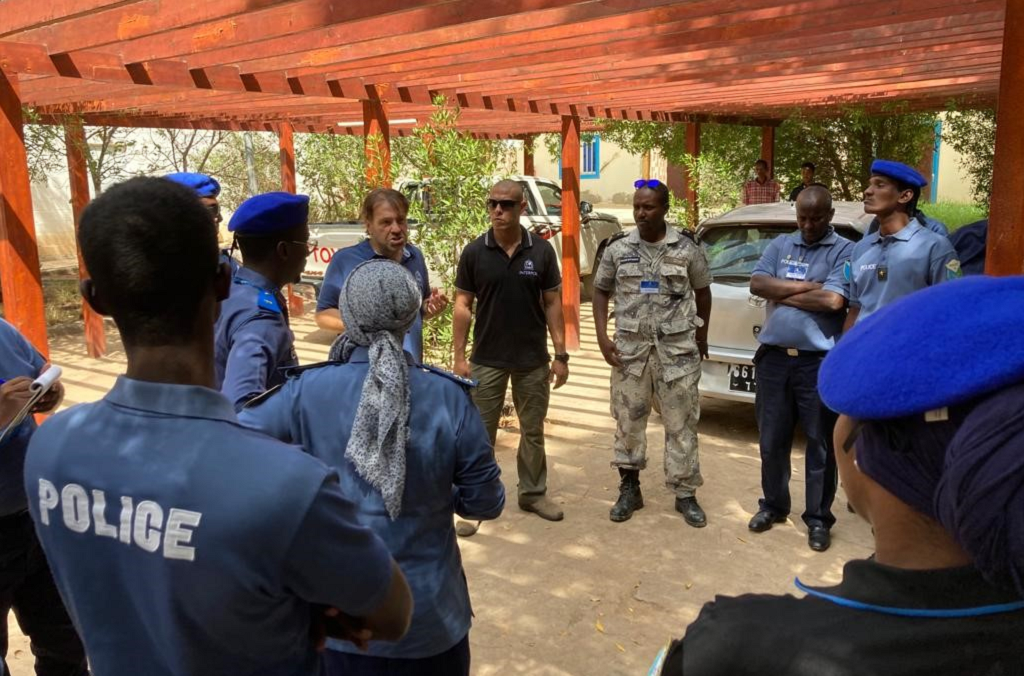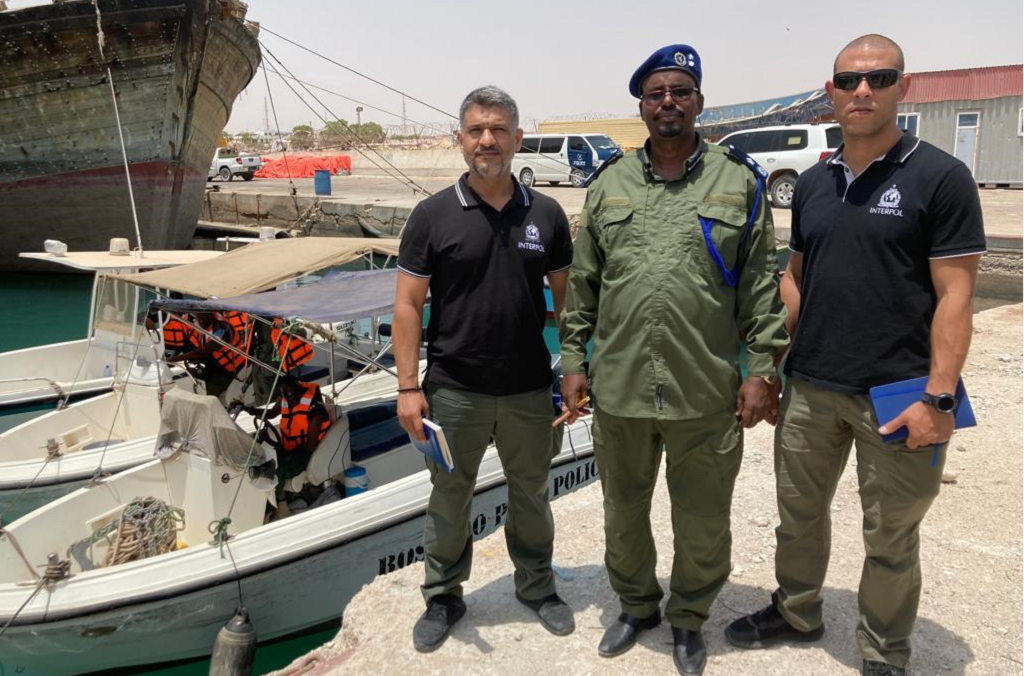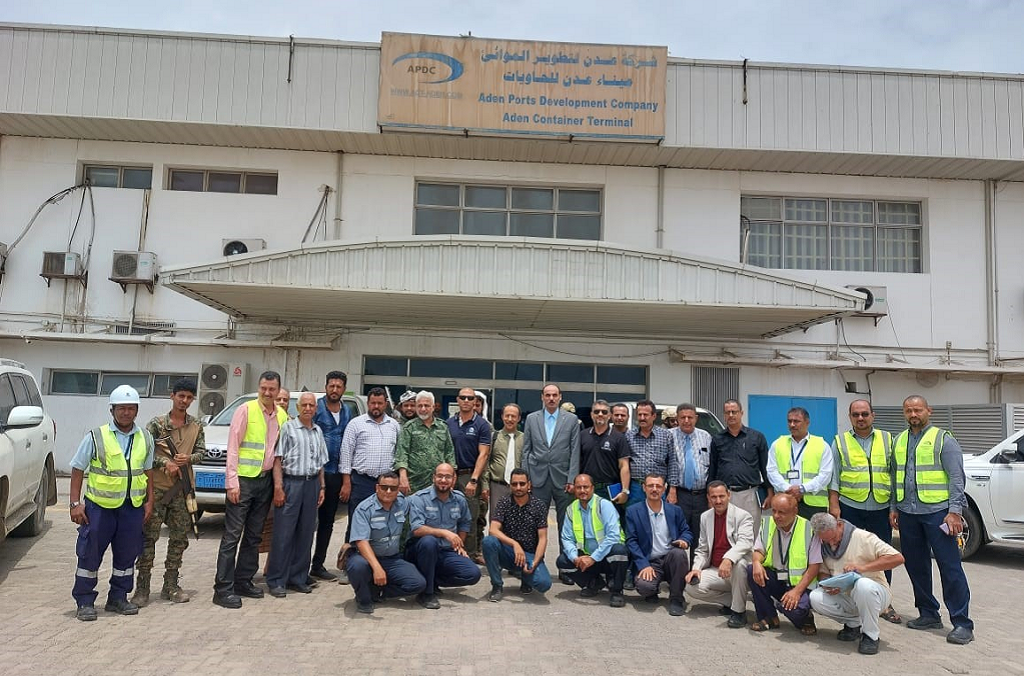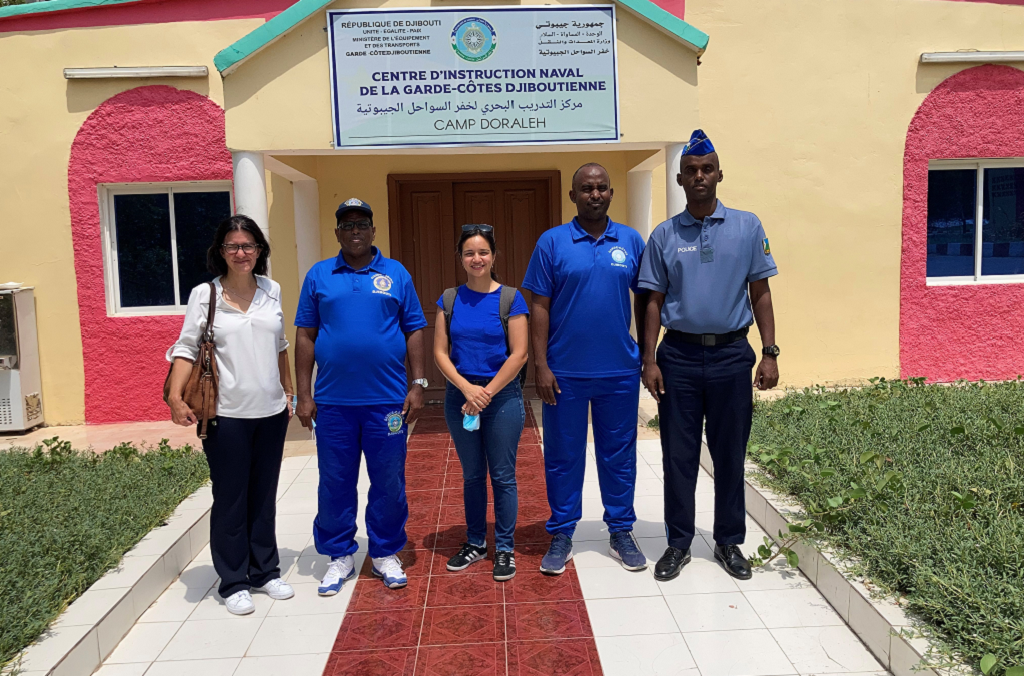Timeframe: 2021 - 2026
Budget: EUR 6.1 million
Donor: European Union
Situation
The Red Sea and the Gulf of Aden constitute one of the world’s major shipping routes. As well as enabling global trade, these waters also present immense opportunities for development and prosperity in the bordering countries.
This potential is far from being fulfilled due to regional instability, conflict, piracy and transnational organized crime which endanger the freedom of navigation of vessels through these waters and discourage investment into port infrastructure and maritime commerce.
In addition to the security repercussions, these illicit activities have a severe impact on the socio-economic and political conditions in the countries of these regions.
About the project
This project forms part of the Regional Programme for Maritime Security in the Red Sea, funded by the European Union.
INTERPOL, the International Maritime Organization (IMO), Intergovernmental Authority on Development (IGAD) and the United Nations Office on Drugs and Crime (UNODC) are working together to help beneficiary countries develop their capacity and to promote adequate security and safety standards for maritime, port and land-based law enforcement authorities.
The beneficiary countries are Djibouti, Ethiopia, Somalia, Sudan and Yemen.
Project aims:
The overall goal of the Red Sea Project is to strengthen maritime safety and security. It will do this by:
- Facilitating information exchange between law enforcement agencies, military, and judicial bodies;
- Strengthening first responder and law enforcement capabilities;
- Building partnerships and enhancing cooperation to combat maritime crime.
Project activities:
The Red Sea Project consists of three pillars.
Pillar 1: Training and capacity building
Specialized training includes:
- Law enforcement techniques and crime scene investigations in the maritime domain
- Physical security of port infrastructures
- Improvised explosive devices
- Financial investigations in the maritime domain
Mentoring sessions include:
- Human trafficking
- Drug trafficking
- Fisheries crime
- Analytical support
Other forms of training include:
- Train-the-trainer sessions
- Intensive training on I-24/7
Pillar 2: Provision of technical equipment to intensify cooperation
- Extending access to I-24/7 at seaports
- Data management and analysis software
- Crime scene investigations kits, digital forensics devices and biometric collection equipment
Pillar 3: Regional maritime security operations
- Organizing country-to-country exchange visits
- Producing analytical reports
- Organizing regional maritime security operations to strengthen cooperation between law enforcement agencies of participating countries.
Project updates
Instructor Development Course
We delivered an instructor development course in Ethiopia and Djibouti in July 2023 to 17 law enforcement officials from Djibouti, Ethiopia, Somalia, and Yemen. The Instructor Development Course provided local experts with the skills required to become regional instructors. They in turn can train a new group of law enforcement officers.
Crime scene investigation training
We delivered this training course to law enforcement officials from Somalia (June 2023), Ethiopia (October 2022) and Djibouti (March 2022). This course helped strengthen collaboration between relevant agencies at a national level. It also helped improve law enforcement officers’ skills to preserve a crime scene and collect evidence. A total of 70 officers participated in the course.
Extending access to I-24/7 at ports:
We are extending access to INTERPOL’s secure global communications network (I-24/7) and databases to participating countries. This technical network strengthens cooperation and enables law enforcement agencies to share urgent police information with their counterparts around the globe.
Mentorship sessions
Mentorship sessions on fisheries crime, drugs trafficking and trafficking in human beings enhanced national authorities’ capabilities and fostered inter-institutional cooperation at a national and regional level. This on-the-ground support increased national coordination and information sharing. 300 officers participated in these sessions held in 2022 and 2023.
E-learning modules
Two e-learning modules on Crime Scene Investigation and Interviewing and Interrogation Techniques were made available on the INTERPOL Virtual Academy platform in English, French and Arabic, covering all languages of our beneficiary countries. The online training courses were completed by 84 participants between January 2022 and January 2023
Launch Ceremony
The Regional Programme for Maritime Security in the Red Sea Region was launched at the Djibouti Regional Training Centre on 10 February 2022. Key stakeholders included the Ministry of Justice, Maritime authority, Ministry of Transport, Ministry of Interior, the Heads of NCB as well as our point of contact for the European Union delegation in Djibouti, the Chief of European Union Capacity Building Mission in Somalia (EUCAP) and the Liaison Officer for European Union Naval Forces (EUNAVFOR).
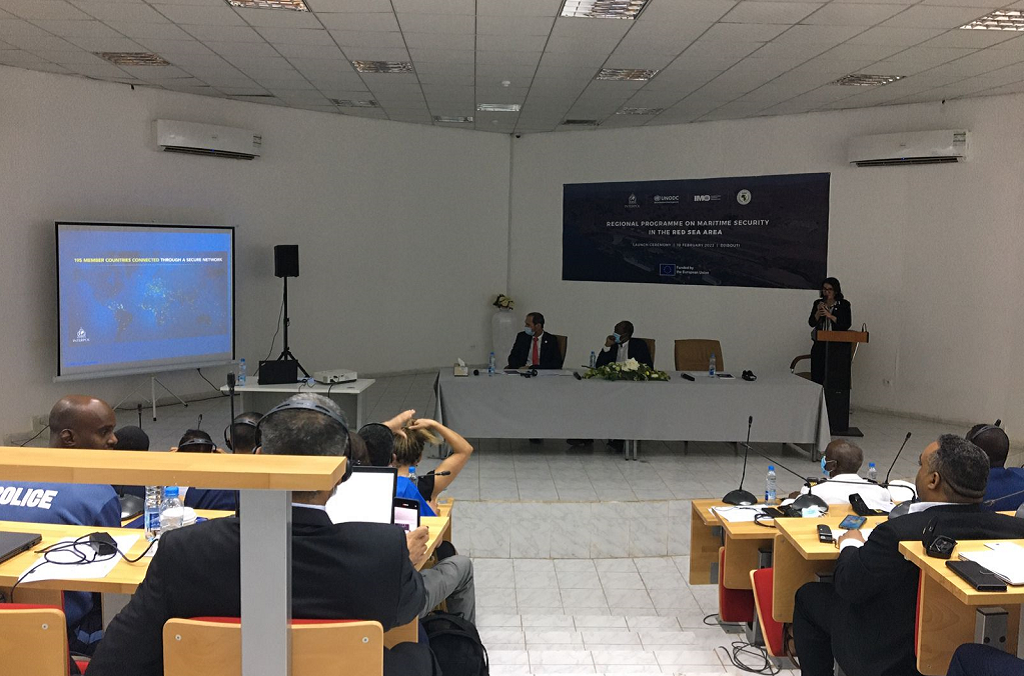
Fact-finding missions
Fact finding missions were conducted in all beneficiary countries in 2021 and 2022. During these missions, we carried out assessments on security gaps and needs at key port facilities. This assessment will help us develop a training curriculum to enhance law enforcement agency capabilities to deter, detect, delay and investigate threats to port security.




